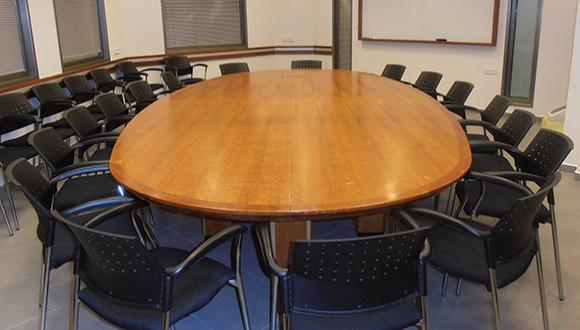Round Table
IP policy-making often takes place with insufficient public participation. The S. Horowitz Institute for IP conducts public round tables on current IP policies. These discussions are open to all who wish to participate, including authors, inventors, scholars, judges, lawyers, regulators, industry, and the public at large. The Institute will conduct one or more round tables each semester.
May 2018
Non- Conventional Copyright
This Book draws a picture of possible new spaces for copyright.It
expands on whether modern copyright law should be more flexible as to whether new or unconventional forms of expression – including
graffiti, tattoos, land art, conceptual art and bio art, engineered DNA, sport movements, jokes, magic tricks, dj-sets, perfume making, typeface, illegal and immoral works – deserve protection.
April 2018
Intellectual Property and 3D Printers
3D printers may replace the home production of certain products. In this sense, the new technology challenges current patterns and practices of production, consumption and branding. How does IP law play in, in this changing picture? Are the producers of 3D printers liable for end-user’s infringing activity? What about a 3D printing facility, offering printing services? This round table explored the implications of 3D printers on design law, copyright law, and more generally, the ways IP law can deal with rapidly changing patterns of creativity and consumption. (heb)
June 2017
Artificial Intelligence and Information Rights – Prof. Oren Bracha – Texas Law Faculty- University of Texas Artificial Intelligence (AI) is at the cutting edge of social and technological development. This technology is expected to bring about far-reaching social changes. Law as a reflection of society and as a social engineering instrument will have to face a variety of challenges emerging out of this new socio-technological reality. Because AI is both information and information-producer, information law is a central point of intersection between the technology and the law. The resultant questions are some of the most challenging faced by law for over a century. The lecture focuses on two of these questions: How should information law handle private rights pertaining to technology of public-control? And how should we shape legal rights in technological inventions or expressive works created by intelligent machines?
May 2017
Parallel Imports: On Exhaustion in Present Times and in Light of Future Challenges - In the global world, cross-border trade has become an essential component of business. Furthermore, information regarding products and markets, has also become global and accessible. This in turn has facilitated parallel imports. Parallel imports, which do not involve imitations or counterfeits of products, have increased by circumventing authorized importers and / or regular marketing channels.As such, the parallel import allows the introduction of products to a particular country, taking advantage of the pricing gaps between the place of purchase of the product and its final place of sale.At first glance, such a practice should be commended for increasing supply and thereby reducing the price that the end consumer pays.
However, the "official importers" will probably be hurt financially by the multitude of products on the market that they did not import. The parallel import challenges the interface between intellectual property laws and trade considerations. The question here is : Can parallel imports be restricted by intellectual property laws?
In this round table event we shall examine the issue of parallel imports from a number of aspects, including legislative, business, regulatory and international, as well as the consumer-importer relationship in the virtual world.
January 2017
Book Event-Owning ideas the intellectual origins of American intellectual Property 1790-1909
May 2016
Book Launch Event: From Maimonides to Microsoft: The Jewish Law of Copyright Since the Birth of Print
Book Launch Event: From Maimonides to Microsoft: The Jewish Law of Copyright Since the Birth of Print, By Neil Weinstock Netanel, UCLA Law School
SHIIP Roundtable: Online Copyright Infringements - How can the law deal with mass-online infringements?
In September 2016, the Ministry of Justice circulated a draft of an amendment to the Copyright Act, that would add various enforcement mechanisms, including a new definition of “infringing online copy”, a procedure to order ISPs to block access to suspect websites, a procedure to unmask anonymous users, and the criminalization of some actions. SHIIP will hold a round table to discuss the proposed bill.
Background material (in Hebrew)
April 14, 2016
SHIIP Roundtable: Legal Design
Who owns an invention made by an employee in the course of her employment? Can the employer require the employee to give up all IP rights in such inventions ex ante?
SHIIP will host a round table to discuss the recent Supreme Court decision on the matter (Barazani v. Iscar Ltd.)
January 7, 2016
A new Design Bill is pending in the Knesset. The new law will replace the 1924 British Design Act. One of the new rules addresses typeface (fonts): The Bill would relocate their legal defense under the law of design, rather than copyright.
Invitation (Heb)
Background material (Heb)
Discussion Summary (Heb)


